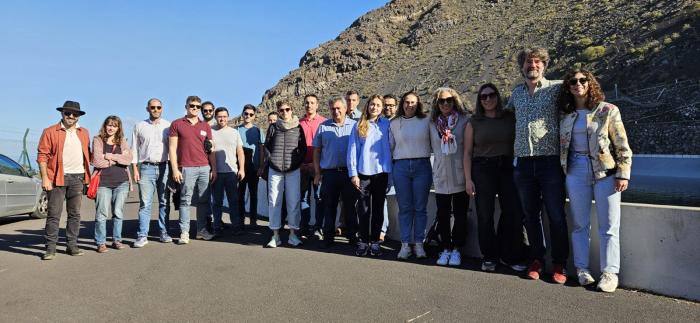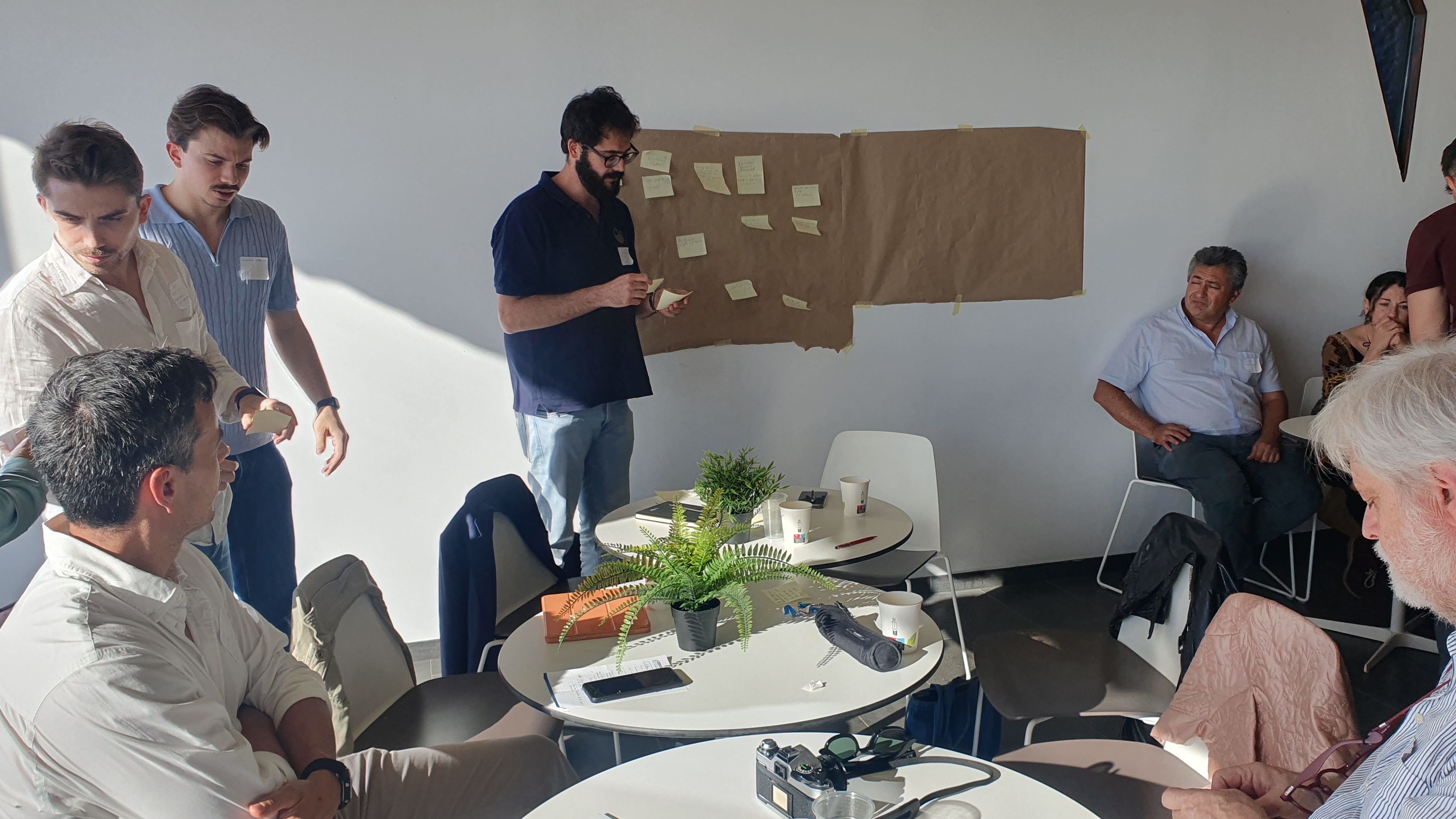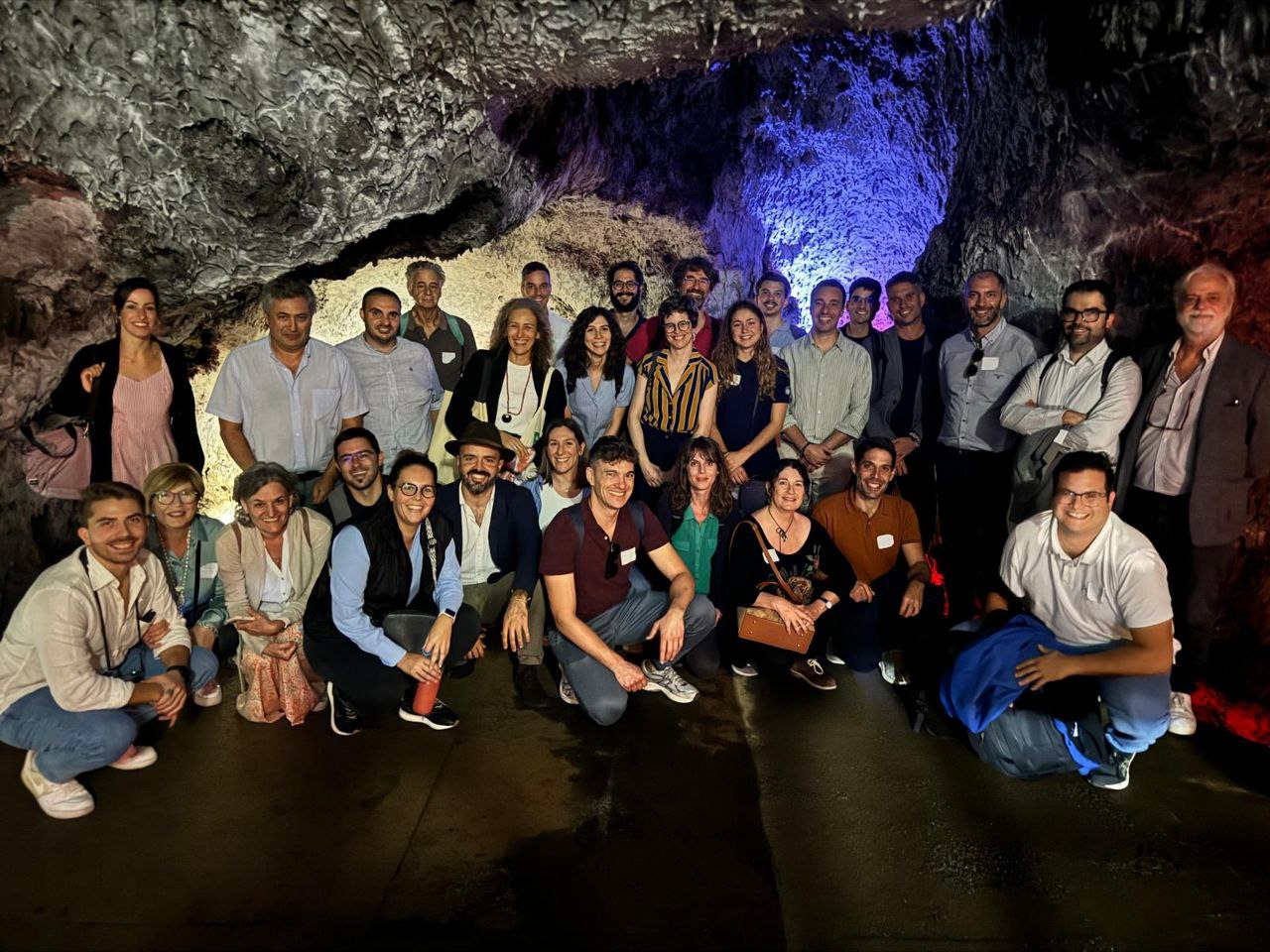
The main conclusion emerging from the workshop is the need to address the underlying problems of overconsumption (of water and energy) in the context of dangerous climate change instead of focusing on extracting and consuming more resources.
Participants praise the opportunity to meet, learn, and discuss such a decisive subject in a constructive manner.
The Clean energy for EU islands secretariat has organised a workshop on the island of La Palma, Canary Islands, addressing the water-energy-food nexus in the face of the looming climate crisis and the need to decarbonise. The workshop, organised with the support of local (La Palma Renovable, SODEPAL) and national (IDAE) organisations, gathered stakeholders from La Palma and several other Spanish and EU Islands around three main work sessions.

The first session was aimed at providing knowledge on the matters under discussion. Several intervenors, both local, national and international, like Salvador Rueda (Fundación Ecología Urbana y Territorial), Julia Martínez (Fundación para la Nueva Cultura del Agua) or Kostas Komninos (DAFNI Network of Sustainable Greek Islands), provided examples of recent and ongoing projects. They all highlighted the need to articulate a coherent strategy that considers water, energy and waste, which should be based on circularity, efficiency and justice rather than solely relying on technologies that only imply more resource extraction (like desalination plants).
During the second session, all participants worked in groups to identify the main challenges to the well-being of their particular island in the coming years and the solutions to address them. The key action levers of such a strategy were the need to diversify the economy, increase food and energy sovereignty and provide training and education.

In the third and final session, participants visited several projects in La Palma, such as an irrigation community and an agricultural cooperative.
As a result of the workshop, participants praised the opportunity to learn and exchange constructively in what is expected to be a first step towards the collective devising of an effective, sustainable, and fair strategy to address the water-energy-food problem of islands.
The Clean energy for EU islands secretariat supports European Islands in their path towards full decarbonisation. La Palma has been at the forefront of the project since it started and continues to provide an example of cooperation between civil society and the public and private sectors. In this sense, the participation of the regional Minister for the Ecological Transition of the Government of the Balearic Islands, the Island Council of La Palma, SODEPAL, La Palma Renovable, as well as the Spanish Institute for Energy Diversification and Saving (IDAE), and the national Ministry for the Ecological Transition represented by Mariano H. Zapata as the Regional Minister as well as Fernando González and Miriam Perestelo as the island councillors, is an example of multi-stake-holder cooperation that is indispensable to advance in the energy transition.

